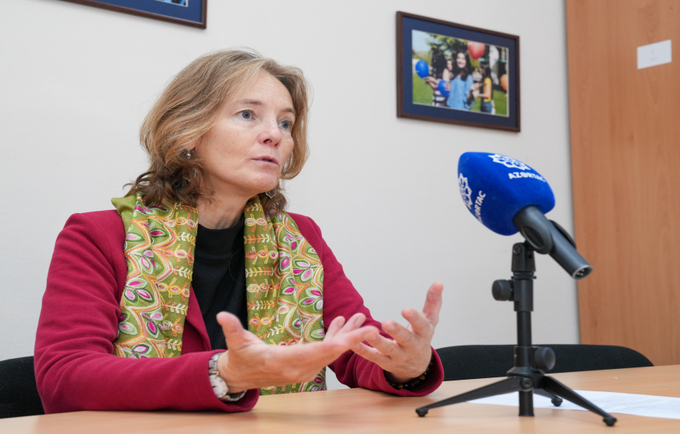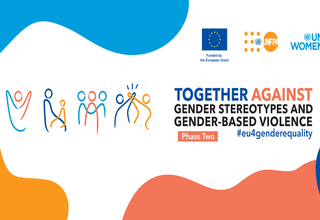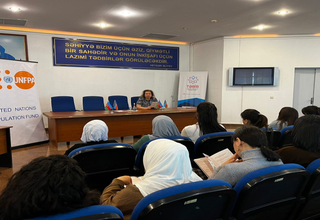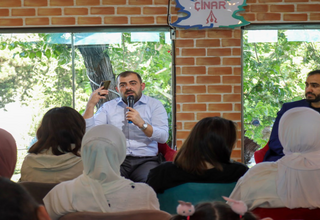- What are the activities and areas of work of UNFPA globally? In what spheres does the organization operate in Azerbaijan?
- UNFPA is the United Nations sexual and reproductive health agency. We work in over 150 countries worldwide to promote gender equality and empower women, girls and young people to take control of their bodies and their futures. Our goal is to make sure everyone who needs it has access to family planning, and to end preventable maternal death and gender-based violence. We also support countries in addressing demographic change.
In Azerbaijan, UNFPA has been on the ground since 1994, our work is focused on combatting gender-based violence and harmful practices such as son preference and gender-biased sex selection, which is still quite common in Azerbaijan. We also help with solutions for demographic challenges such as population ageing, as well as on youth participation, reproductive health and reducing maternal mortality. Our country office works closely with leading government institutions, as well as with civil society institutions and activists, academia and the media.
- Your visit coincides with the period of the 16 Days of Activism against gender-based violence, which is being marked in Azerbaijan as well as all over the world. How does UNFPA contribute to the efforts of combatting gender-based violence in Azerbaijan?
- The 16 Days of Activism against gender-based violence is a moment to remind us of how widespread the various forms of violence against women are, and to recommit us to eradicating all forms of violence and abuse. In Eastern Europe, 1 in 3 women have experienced physical or sexual violence, and if you count other forms of violence – like psychological or economic violence – almost three quarters of women are affected. And this doesn’t even include harmful practices like child marriage or son preference and gender-biased sex selection. That is why I am talking about gender-based violence as a silent epidemic, because it happens absolutely everywhere in the world and unfortunately women and girls are typically the victims and survivors of different forms of violence.
Gender-based violence destroys lives – in many cases quite literally, as we hear about so many horrific stories of women being killed, often by their current or former partners. But even if it’s not deadly, violence has far-reaching negative consequences for women’s health and lives. Along with that, it impacts communities and the whole society. We have the evidence that gender-based violence has also impact on GDP of countries, because of high cost related to healthcare and loss of productivity.
That’s why UNFPA is at the forefront of efforts around the world to prevent gender-based violence in all its forms and provide support to survivors of violence.
In Azerbaijan, combatting gender-based violence is one of the priorities of UNFPA’s work, together with our national partners, including the State Committee for Family, Women and Children Affairs and the Ministry of Labor and Social Protection. The government of Azerbaijan is strongly committed to address gender-based violence, and the international conference on "Prevention of Domestic Violence: Possibilities and Perspectives", which was organized by the State Committee for Family, Women and Children Affairs and I also participated at, is a clear indication of this commitment.
We have supported a broad range of initiatives on addressing GBV in Azerbaijan. This includes a GBV helpline, and a new 4-year programme aimed at strengthening the GBV case management system and access to services for survivors. The project’s outcomes are expected to increase uptake of response services, raise community awareness of GBV and mitigate and prevent further violence.
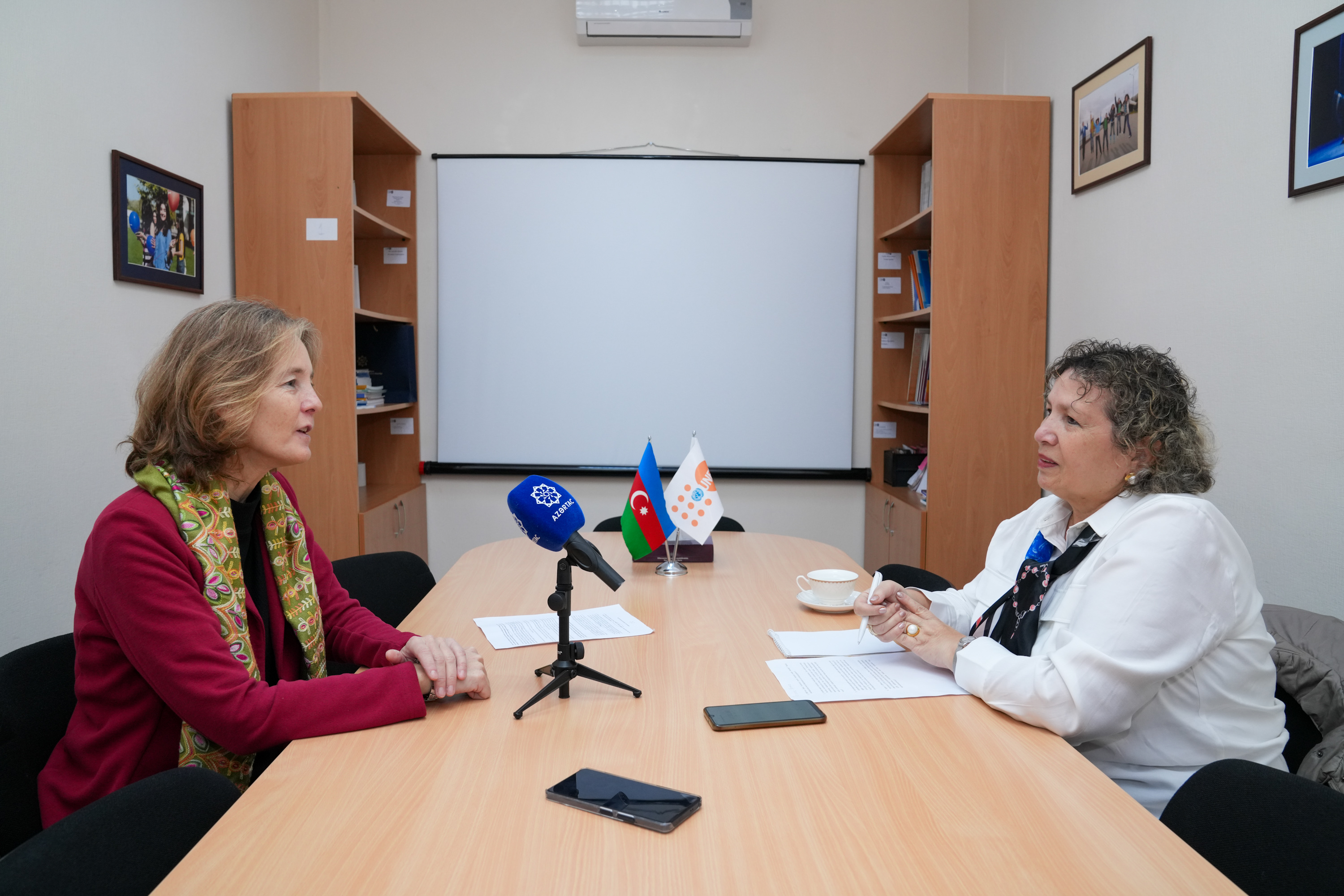
- The latest official statistics on gender-biased sex selection (selective abortions) in Azerbaijan show that the sex ratio at birth decreased by 4 points to 112 boys per 100 newborn girls. What projects are implemented by UNFPA in Azerbaijan to combat gender-biased sex selection and promote the value of girl a child?
- We share the concern about the skewed sex ratio at birth in Azerbaijan and other countries in the region. It is an expression of deep-rooted biases discriminating against women and girls. What is behind gender-biased sex selection is social norms and discrimination of women, that is why we need to address it in a very comprehensive way that entails having laws and legal framework in place as well as working with the population, especially with male groups, to promote equal rights for women and girls.
It is encouraging to see that imbalance in SRB rate has been reduced recently and we will need to wait to see that this progress is sustainable, but overall Azerbaijan is still among the countries with the highest imbalances in the world.
We have worked with the government of Azerbaijan for over 10 years on eliminating gender-biased sex selection and son preference and promoting the equal value of girls. One of the major achievements of UNFPA’s work with the government in this sphere was the preparation and adoption of the “National Action Plan” for 2020-2025, which combines a series of important activities and measures to be implemented by local authorities and institutions.
UNFPA has also just finished implementing the second phase of the EU-funded programme on “Addressing gender biased sex selection and related harmful practices in the South Caucasus”. This 3-year programme consisted of a great number of advocacy activities and campaigns implemented throughout the country. One of the milestone achievements – the Papa Schools project – has reached in total 13 regions of the country, promoting the ideas of responsible fatherhood and gender equality in communities. At papa schools, we work with fathers and fathers-to-be so that they can experience how to be responsible fathers and how to promote equality in their families and communities at large, via eliminating patriarchal stereotypes and behaviors around distribution of household duties and chores, including childcare, spending time with children etc.
- We are approaching the 30th anniversary of the International Conference on Population and Development (ICPD), and this landmark event is expected to be celebrated globally next year. How do you assess the achievements of Azerbaijan in the framework of the ICPD platform, in which the country has been actively participating during all these years?
- Azerbaijan participated in the landmark ICPD conference held in Cairo in 1994 and ICPD25 follow-up conference in Nairobi in 2019 with the high-level delegations. The ICPD conference represents a paradigm change when the member states, including Azerbaijan, decided to look at the population and development focusing on people and not only on numbers, thus putting the rights of people at the center of development. And now when we celebrate 30th anniversary of ICPD, it is an important moment to look back to see what has been achieved.
Throughout this period, Azerbaijan has been committed to the implementation of the ICPD agenda, and progress has been made in a number of areas such as legal and policy frameworks on GE, GBV and GBSS, improved data and evidence for informed policy and decision making, etc. But challenges remain, for example when it comes to provision of substantive gender equality and elimination of gender-based violence and other harmful traditional practices as well as ending unmet need for family planning in the country. UNFPA works with the government, civil society organizations, private sector, bilateral and multilateral partners to accelerate progress on these and other areas, in the context of national development priorities.
In many countries there is a tendency of decreasing fertility rate. In some countries there is outmigration. These are generating situations in which countries may face population shrinking. What is important in this kind of situation is to really focus on gender equality, because this way countries would be able to respond to these demographic trends. As UNFPA, we work with the governments so that they understand the demographic trends, can predict how their population is going to evolve and have policies, strategies and resources in place to respond to the specific demographic needs.
